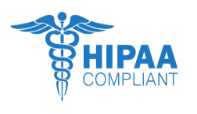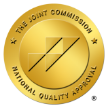Many of your patients may not get how severe Obstructive Sleep Apnea (OSA) is when left untreated. If their at-home sleep study indicates mild sleep apnea, they may not see the need for immediate treatment, and some people are likely to put off sleep apnea treatment indefinitely.
CPAP is erroneously thought of as the only sleep apnea treatment, and many of the patients you’ll meet will know someone who has told them horror stories about sleeping with a CPAP machine. It’s crucial your patients not only understand the dangers of untreated sleep apnea but also need to understand that other sleep apnea treatment options are highly effective, affordable, and more comfortable than CPAP.

Dangers of Untreated (or Uncontrolled) Sleep Apnea
While you may know what could happen if sleep apnea is left untreated, your patients will not. You have to convey to them that sleep apnea can be life-threatening if treatment is not sought. As a sleep apnea dentist, you should provide them with a list of how their health could deteriorate because of their sleep apnea.
The Johns Hopkins Medicine website provides the following information:
Several studies have shown an association between sleep apnea and problems like Type II Diabetes, heart attack, stroke, and even a shortened lifespan. Obesity is common in sleep apnea patients, and obesity dramatically increases the risks of diabetes, stroke, and heart attack. In most cases of OSA, obesity is the main culprit.
However, you can explain to your patients that not everyone with sleep apnea is obese. Furthermore, evidence suggests an independent link between sleep apnea and diabetes. “Our [Johns Hopkins] lab and others have shown that sleep apnea is associated with higher risks of diabetes, independent of obesity, and that sleep apnea can increase blood sugar levels,” one study indicates.
The study goes on to explain:
“For people who are overweight or obese, weight loss is vital for treating or avoiding sleep apnea. People who accumulate fat in the neck, tongue, and upper belly are especially vulnerable to getting sleep apnea. This weight reduces the diameter of the throat and pushes against the lungs, contributing to airway collapse during sleep.
Women, in particular, should be careful as they age. While premenopausal women tend to put on weight in the hips and the lower body instead of the belly, this shifts with time. Weight begins accumulating in traditionally “male” areas like the tummy, leading to a greater chance of sleep apnea.”
Here’s a bullet list of the key dangers of untreated sleep apnea:
- High blood pressure
- Heart disease
- Diabetes
- Asthma
- Heart failure
- Heart arrhythmias, including atrial fibrillation
- Heart attack
- Stroke
- A shortened lifespan
- Depression
- Anxiety
- Drowsy driving, which could lead to motor vehicle collisions
Highly Effective Sleep Apnea Treatment Methods
CPAP and Oral Appliance Therapy (OAT) have proven to be hugely successful in treating sleep apnea. Since not all patients will be CPAP-compliant, Oral Appliance Therapy is gaining momentum as the go-to sleep apnea treatment.
CPAP has always been the gold standard of sleep apnea treatment, and with good reason. Many studies show that when CPAP is used as directed, it reduces blood pressure and improves wakefulness during the day. People who are CPAP compliant also report an improved quality of life. In some observational studies that compare people with apnea who use CPAP versus those who don’t, the CPAP users have a lower risk of stroke and heart attack and lower blood glucose.
The evidence that CPAP works is clear, but your patients should also know about the benefits of Oral Appliance Therapy.
Oral Appliance Therapy is the preferred treatment modality for several reasons:
- Discreet
- Comfortable
- Portable
- Quiet
- Easy to maintain
- More affordable than CPAP
Convince Your Patients of the Dangers of Untreated Obstructive Sleep Apnea
If your patients’ at-home sleep study indicates they have mild, moderate, or severe OSA, it’s time to discuss the dangers of untreated sleep apnea with them. Once they’ve heard how their health can decline, they may be more apt to begin sleep apnea treatment immediately. Please review our website and contact our representatives if you have any questions.

In our fast-paced, digitally driven world, we find ourselves in front of screens all day long, right up to the time we go to bed. All that constant exposure to computer screens, tablets, phones, and other devices can impact the quality of sleep we get, particularly if we don't put the devices away early enough. As we head into spring, when everything is coming back to life, why not breathe life into your sleep by enforcing a little digital detox?

Getting good sleep is crucial to our overall health and well-being. It is the foundation for a healthy lifestyle and is essential for mental fortitude. A good night's sleep not only promotes physical health but also helps improve our mood and prevent mood swings, irritability, anxiety, and depression. However, as we age, it can become increasingly difficult to get proper sleep, and we may not even realize it at first. To better understand the science of sleep, we need to know what our body needs, be aware of the symptoms of poor sleep, and explore ways to improve our sleep quality to become a happier and healthier version of ourselves.

There are few things as important as getting good sleep, yet we have many behavior patterns that can leave us tired each morning without realizing it. While a few nights of poor sleep aren't so bad, it isn't good to get into a habit. Your body needs quality sleep. It is important for brain function and mental health. What's more, poor sleep can lead to chronic physical health problems. Who needs that? Let's make 2024 the year you started getting better sleep. Here are ten tips that can help you sleep better.



